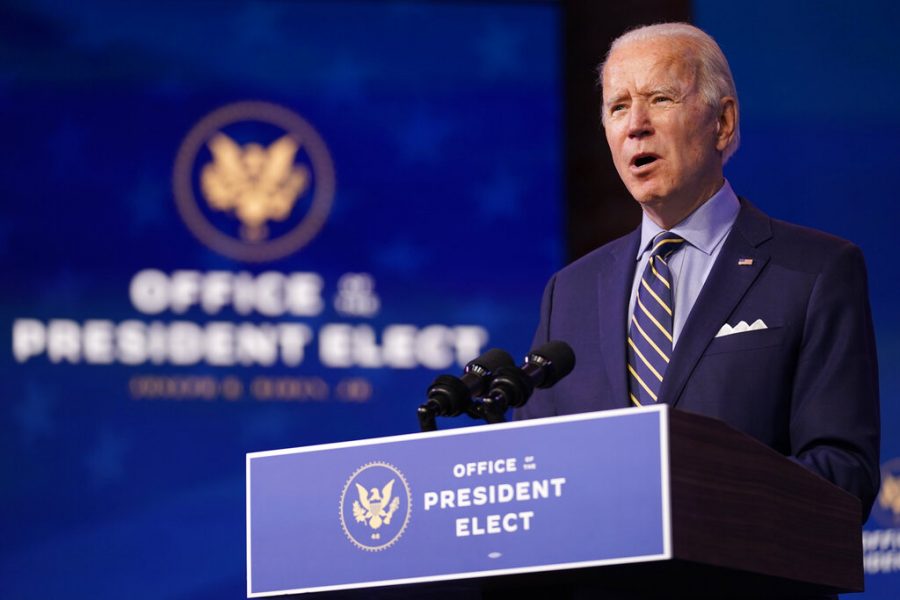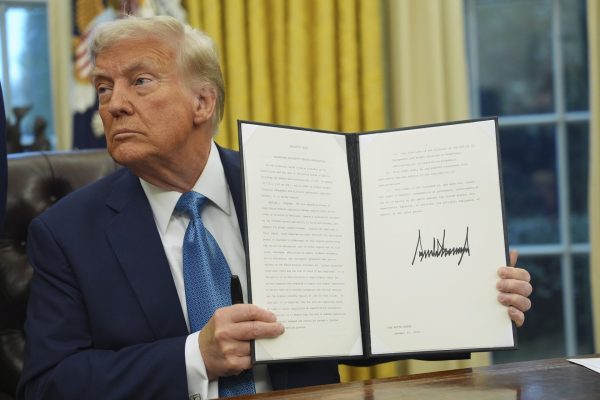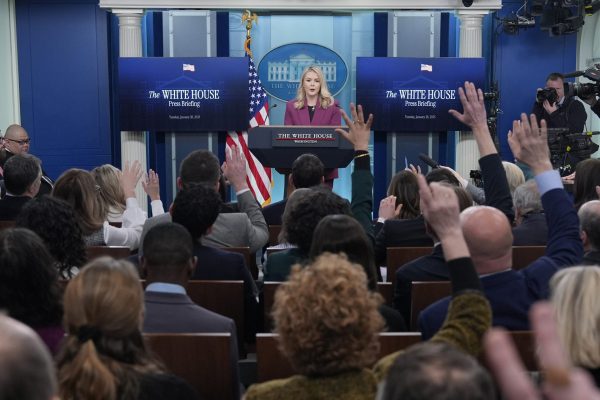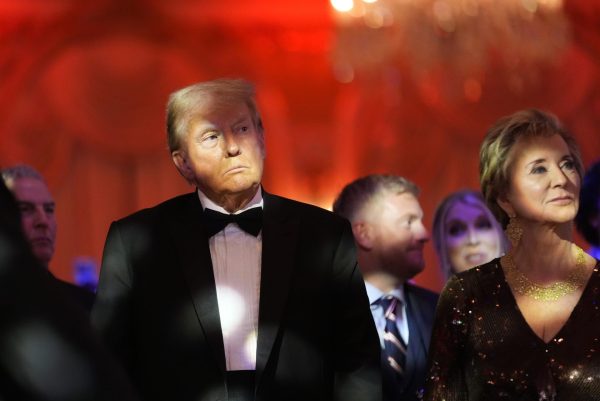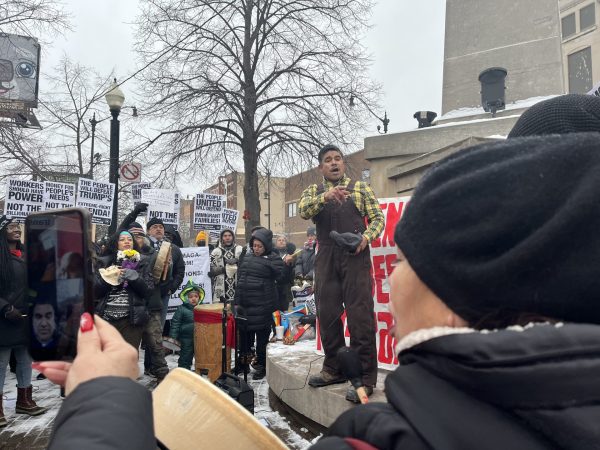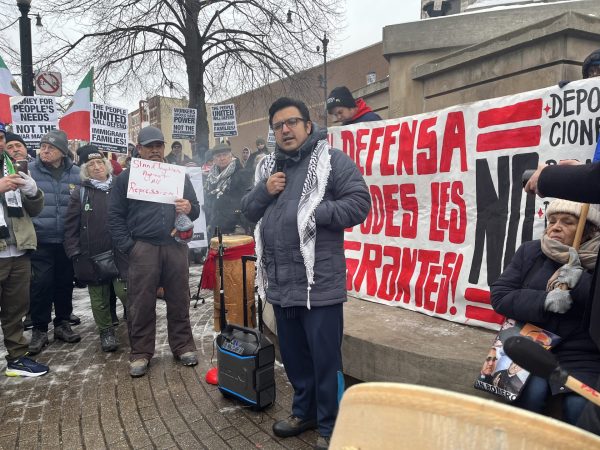Biden could face problems as he plans to rejoin Iran Nuclear Deal
Credit: AP
President-elect Joe Biden speaks at The Queen theater, Monday, Dec. 28, 2020, in Wilmington, Del. (AP Photo/Andrew Harnik)
In 2018, President Donald Trump withdrew the United States from the Iran Nuclear Deal negotiated under the Obama administration in 2015, putting a “maximum pressure” campaign on Iran in its place by reimposing stringent sanctions.
“This was a horrible one-sided deal that should have never, ever been made,” Trump said in May of 2018 during an address at the White House. “It didn’t bring calm, it didn’t bring peace, and it never will.”
With less than a month left in office, Trump has increased sanctions against Iran along with selling weapons to Iran’s enemies in the region.
With President-elect Joe Biden to take office in January, he has expressed his desire for the U.S. to rejoin the deal, known as the Joint Comprehensive Plan of Action (JCPOA), meant to prevent Iran from obtaining a nuclear weapon in exchange for a relief in economic sanctions.
“If Iran returns to strict compliance with the nuclear deal, the United States would rejoin the agreement as a starting point for follow-on negotiations” Biden wrote in an op-ed in CNN in September.
Some recent events, however, may make Biden’s efforts to rejoin the Iran Nuclear Deal difficult.
In late November, Mohsen Fakhrizadeh, Iran’s top nuclear scientist, was assassinated in a roadside ambush as he traveled outside Tehran with his bodyguards, according to Iranian media.
Scott Hibbard, the chair of the political science department at DePaul University who specializes in Middle East politics, explained how the killing of Fakhrizadeh would affect Biden’s efforts in rejoining the Iran nuclear deal.
“It puts the Biden administration in a bit of a box in that the Biden administration has said they want to rejoin the JCPOA,” Hibbard said. “This makes it that much harder. If anything else, it’s going to make the Iranians much more reluctant to trust the U.S. and to really engage the U.S. in a serious diplomatic way.”
Following the assassination, Iran has put in place a law that would increase its “enrichment of uranium to levels closer to weapons-grade fuel” along with calling for “the expulsion of international nuclear inspectors” from Iran if sanctions imposed by the U.S. are not lifted by early February, according to an article from The New York Times.
Recent satellite images reveal Iran’s plans to move a key nuclear facility underground after an explosion at its main nuclear fuel enrichment facility in Natanz led to the destruction of a centrifuge assembly hall.
Despite these developments, both Iranian President Hassan Rouhani and Supreme Leader Ali Khamenei have signaled that Iran is willing to return to the terms of the original deal as long as the U.S. lifts sanctions, which have crippled Iran’s economy.
“Our aim is to lift the pressure of sanctions from the shoulders of our people,” Rouhani said in a televised Cabinet meeting in November. “Wherever this favorable opportunity arises we will act on our responsibilities. No one should miss any opportunity.”
But hardliners in both Iran and the U.S. may make the efforts for both countries to rejoin the nuclear deal more challenging.
“There are those that do not want to engage the west within Iran and there are those in the west that do not want to engage with Iran,” Hibbard said. “Ironically, the hardliners on both sides feed each other and they strengthen each other and Trump’s policies more than anything else helped to undermine the moderates in the Iranian camp.”
Saeid Golkar, a non-resident senior fellow on Iran policy at the Chicago Council on Global Affairs, explained that the hardliners in Iran want the Biden administration to wait until after Iran’s presidential election in June 2021 to begin negotiations.
“They believe that in the next election, they have a chance to change the president,” Golkar said. “They are not completely against negotiations with the U.S. They just want to do it by themselves. They don’t want Hassan Rouhani to benefit from the renegotiation with the U.S.”
Golkar added that due to the effect of the stringent sanctions on Iran’s economy and the Covid-19 pandemic, which has also added pressure to the Iranian economy, Iran’s Supreme Leader may push for negotiations to begin sooner.
“Because of the economic sanctions, because of the pandemic… and because the Iranian society is under huge pressure economically, the Iranian Supreme leader has no choice,” Golkar said.
While Biden has expressed interest in the U.S. rejoining the Iran Nuclear Deal, he, along with the European countries that also signed on to the JCPOA, believe that it must be renegotiated.
Rouhani, on the other hand, said that negotiations are not necessary to restore the deal.
“The next person can put up a nice piece of paper and sign it and it just needs a signature, we’ll be back where we were,” Rouhani said during a televised Cabinet meeting earlier this month. “It takes no time and needs no negotiations.”
The 2015 deal primarily focused on Iran’s nuclear program, failing to address other issues including Iran’s support of Houthi rebels in Yemen and Hezbollah, a Lebanese Shia militant group.
Hibbard explained that the two countries need to focus on “finding areas of common interest,” — in this case, Iran’s nuclear weapons program, to help build diplomatic relations.
“The way diplomacy works is you build on areas of common agreement and then as you engage diplomatically, you engage in what’s known as mutual confidence-building measures,” Hibbard said. “You build trust between states and as you do that, then you can begin addressing some of the larger issues.”
Hibbard added that this was an effort to normalize relations with Iran.
“From the Obama administration’s perspective, you deal with one issue at a time,” Hibbard said. “You deal with the first issue and then the second issue and you deal with the third issue. As you continue to engage over the course of several years, you can deal with these issues diplomatically because again there are areas of common concern.”
As Biden works to rejoin the Iran Nuclear Deal, Golkar thinks that Biden wants to pursue a broader deal with Iran focusing on “three different issues:” Iran’s nuclear technologies, its missile program and its support of Shia militia groups.
“They learned after the Obama [administration] that they have to have a more broader deal or no deal at all,” Golkar said.
Golkar added that any negotiations between the U.S. and Iran will be difficult as both countries “have a different expectation.”
“I really think it’s very difficult for both because Biden should sell this deal to the Americans as a better deal,” Golkar said. “If he just wants to talk about the nuclear program, I think even Congress do[es]n’t accept it or the American people in general.”
“For the Islamic Republic, it’s very difficult to accept a negotiation over all of these three pillars of its deterrence policies: the nuclear [technologies], the missile [program] and the Shia militia,” Golkar added.


